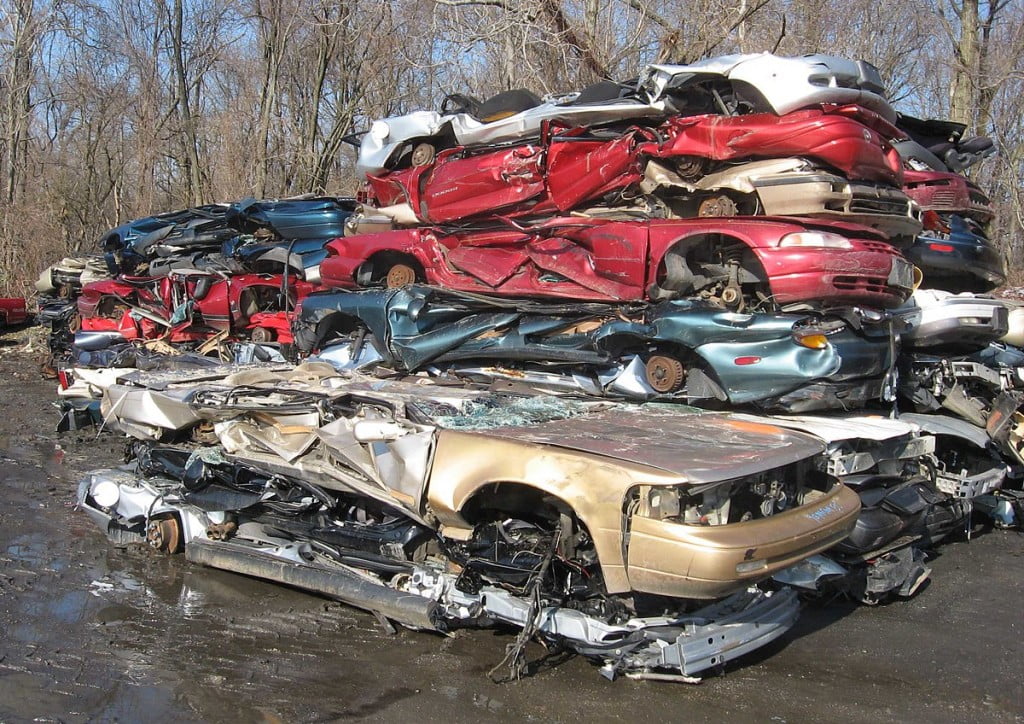The government of India recently approved the Vehicle Scrappage Policy for the Indian automobile industry. In a boost to get rid of pollution-causing vehicles on the road and boost the auto industry, the Ministry of Road Transport and Highways announced that the private vehicles older than 20 years must undergo a fitness test to establish that they are in a condition not to cause pollution to the environment. The age of the commercial vehicles is decided to be 15 years. In order to make it easily adaptable, the government needed to incentivise it in some form. That is exactly what the government has done now. Let us take a look in detail at the offers put forth by the government to promote the vehicle scrappage policy.
Also read: Vehicle Scrappage Policy will create more jobs!

Vehicle Scrappage Policy – Incentives for the customers
The car owners can only voluntarily go for vehicle scrappage if there is some incentive involved. Recognizing the need for this, the government introduced discounts on the new cars of 5% if you give up your older car up for scrapping. This is a positive step to promote the adoption of vehicle scrapping. Through public private partnerships, there will be dedicated centres to develop vehicle scrappage infrastructure. Also, the government has announced that there will be heavy penalties on vehicles that fail the fitness test mandatory for vehicles older than 20 years in case of private and 15 years in case of commercial vehicles. These vehicles are termed as the ELVs (End of Life Vehicle).
Also read: Passenger airbag mandatory for all new cars from April 1!
Vehicle Scrappage Policy – Fitness test and green tax
According to government estimates, more than 1 crore vehicles today qualify as ELVs in our country. Almost all of them have been decaying either on roadsides or someplace near the parks or open areas in the cities. This has caused serious health hazards because of improper decomposition of the components of the vehicles. These vehicles typically cause over 10 times the pollution as the modern BS6 compliant engines. Also, the fitness test will be a bit expensive to promote scrapping of the old vehicles and the vehicle failing the test will be impounded if found on the roads. The same is the concept of green tax which will be levied on the older vehicles to encourage the owners to give the old vehicle for scrapping.
Vehicle Scrappage Policy – What is the aim of the government
The government aims to achieve a ton of this with this single policy. To start off, emissions regulations have become serious issues in today’s day and age and BS6 was the step in that direction. So there must be a check on the exhaust of vehicles. Secondly, the auto industry was going through a slump even before the pandemic. This policy will help get rid of around 1 Crore ELVs from the roads and boost eh sales of new vehicles in the country. This applies to both, passenger, as well as commercial vehicles. This is the best way to boost the industry and contribute to the economy. Thirdly, the availability of materials like iron, aluminium, plastics, etc will be more readily available in the market after the recycling process. This could be used back in the manufacturing of the cars and the prices can be reduced further. That will in turn be beneficial for the customers.
Also read: Car sales report for February 2021 – Brief Overview!
Policies like these are welcomes by the industry experts and enthusiasts alike because such policies are beneficial for the customers, environment and the economy of the country. The west has already seen the benefits of the scrappage policy and India will start to see and enjoy the benefits very soon.
Image Source: Wikipedia


